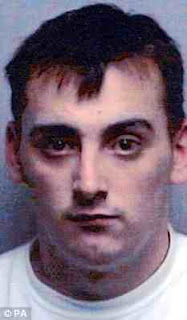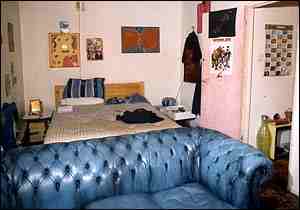On Friday the 28th October 2011, at Bristol Crown Court, Vincent Tabak was sentenced to life imprisonment for murdering his neighbour Joanna Yeates. The judge has ordered that he must spend at least 20 years in prison.
Mr Justice Field said Tabak, who was flanked by six security guards in the dock, was guilty of an evil and wicked act and is a "very dangerous" individual.
Yeates's parents were not in court to hear the verdict but her boyfriend Greg Reardon stared at Tabak, visibly shaken and close to tears as he was led from the dock. In a statement from her parents read out by police outside court, they said: "It is a regret that capital punishment is not an option."
During his trial the prosecution claimed that Tabak, 33, was motivated by sex when he attacked Yeates at her home on 17 December 2010.
It suggested he may have spied on the landscape architect and claimed that an important feature of the case was that when her body was found on Christmas morning, her top had been pulled above her bra and part of one breast was exposed. His DNA was found on Yeates's chest.
The jury did not hear during the trial that when police delved into Tabak's computers after his arrest they discovered an interest in hardcore pornography, some of which featured strangulation and bondage.
He accessed a portal to a pornographic site on the day he killed Yeates. Following the killing he sometimes navigated between reports about her disappearance and pornography.
Police were particularly interested in an image on one of his computers showing a slight blonde woman, resembling Yeates, with her pink top pulled up.
Police analysts also found that during business trips Tabak researched escort agencies. While in Los Angeles shortly before his attack on Yeates, police believe, he may have twice used the services of a sex worker, once after checking into a hotel under a false name.
The judge, Mr Justice Field, ruled that the value of the evidence in explaining why Tabak acted as he did could not outweigh the prejudice it would cause his defence.
After Tabak appeared in the witness box and portrayed himself as a loving man devoted to his girlfriend, Tanja Morson, the prosecution argued that the jury ought to be told about the evidence relating to escort girls. The judge disagreed and the jury did not hear the evidence.
After the verdict, the judge told Tabak, "In my view you are very dangerous. In my opinion you are thoroughly deceitful, dishonest and manipulative.
"When you entered her flat on the evening of 17 December last year you did not even know her name and had virtually nothing to do with her.
"You proceeded to strangle her, intending, in my judgment, to kill her.
"A dreadful, evil act committed against a vulnerable unsuspecting young woman in her own home.
"That wicked act ended the life of a young woman who was entitled to expect a life of happiness and fulfilment."
Speaking outside the family home in Ampfield, near Romsey, Hampshire, Yeates's parents, David and Theresa, said in a statement: "We are not elated. We always knew that he was guilty, whatever the jury decided. We are, however, relieved with the murder verdict because we do not know how we would have reacted if they had come back with manslaughter.
"We are feeling mixed emotions, but we don't really have any anger. Tabak has shown no remorse – in court he made noises, but there was nothing there.
"After Jo died we tried to put our lives back together. The trial was something we had to go through and now we've got to try and get back to life before that.
Tabak may face further police questioning about some of the material found on his computer.
During the trial Tabak claimed Yeates invited him into her Clifton flat and he made a pass at her when she made a "flirtatious" remark to him.
He said she screamed when he attempted to kiss her and he put one hand over her mouth and another around her throat to "calm" her. Tabak claims he gripped her for about 20 seconds before she fell lifeless to the floor.
Neither the prosecution nor those close to Yeates believed she flirted with him. Nor did they believe Tabak's claim that she did not struggle when he held her by the neck.
The judge said there were no mitigating features in the case – only aggravating factors – and he proceeded to outline them. "There is a sexual element to the killing of Joanna Yeates," the judge said.
"On your own evidence, after an acquaintanceship of only a few minutes, you moved to kiss Joanna and I am quite satisfied that you did not intend to stop there and intended to go much further.
As he sent the jury away to consider its verdict, the judge said the central point to consider was whether Tabak had intended to kill or seriously harm Yeates. If the jurors were sure of that, they would return a verdict of guilty.
Tabak had admitted manslaughter but denied murder.
Please visit my True Crime website for more stories...




























